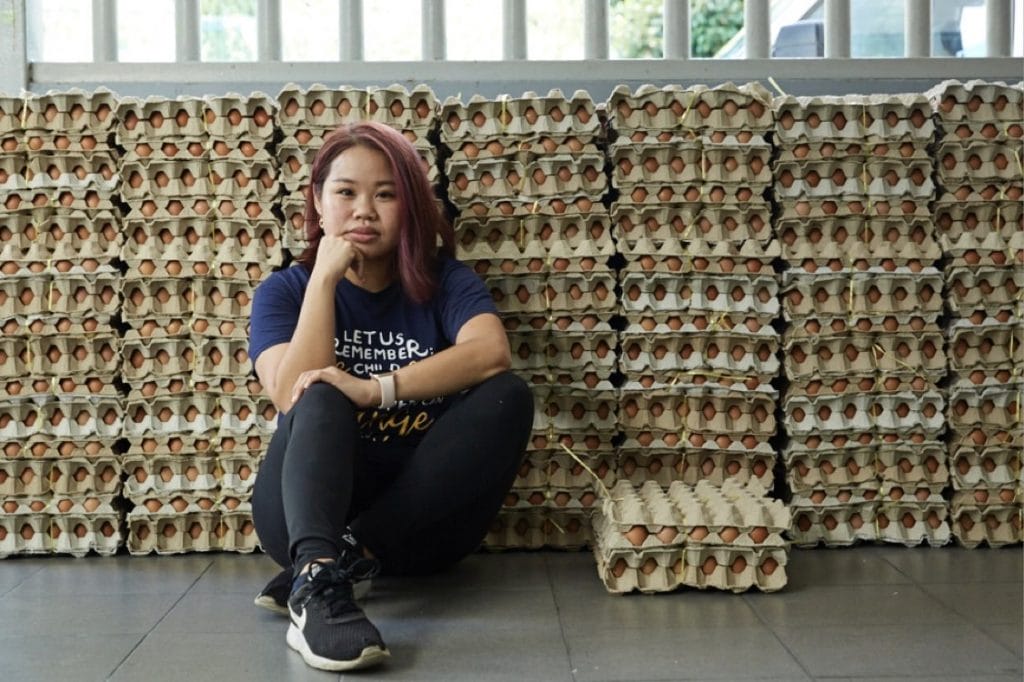By Kirat Kaur
When meeting Heidy Quah in person, one could never tell that this beaming, energetic young woman deals with some of the most severe instances of human tragedies and heartbreak on a daily basis since she was 18 years old.
Yes, at the age when many young Malaysians were pondering their future after finishing school, Heidy instead spent several months volunteering as an English teacher at a refugee school in the heart of Kuala Lumpur. Little did she know that this one simple decision would change her life forever. “I went in thinking that I was there to teach English, but the encounters in the school, and interactions with the kids and the families changed me and shaped me into who I am today,” she recalls.
This is when the young lass came face to face with the grim reality of the lives of refugees, the traumas they carry as well as the injustices they face. “I wanted to provide them with a refuge of sorts – a safe space, a place of rest, restoration, hope and healing,” she explains. And so, the determined Heidy set up her own non-governmental organisation (NGO) called Refuge For The Refugees (RFTR) in June 2012 as a one-stop centre that looks into advocating for the rights of refugees in Malaysia.

Photo by Law Soo Phye
Now in its ninth year, the NGO has reached heights that Heidy never thought would happen. RFTR supports and empowers 35 refugee schools, two shelter homes and a social business school across Myanmar and Malaysia, ensuring and fighting for quality education for all. The NGO also works in policy and advocacy work with governments and international bodies, including case management, individual support and providing educational programmes.
With over a decade of philanthropic work under her belt, Heidy herself has become an expert specialising in complex human trafficking cases, as well as advising corporations on their anti-slavery and anti-human trafficking policies. Her work has also earned international awards such as the Young Leaders Award from Her Majesty, Queen Elizabeth II in 2017 and later the 2020 Women Of The Future Southeast Asia Awards. Aside from refugee aid work, the hardworking philanthropist shares her breadth of knowledge in academia as the Adjunct Associate Professor at Taylors Lakeside University, as well as a supervisor to a PHD candidate in Australia Catholic University.
While the highs have been high, the lows of doing refugee aid work is terrifying. With so much misunderstanding on the plight of the refugees in Malaysia, Heidy has been inundated with hateful comments and even death threats on social media after shedding light on the plight of refugees and migrants during the Movement Control Order period. But she takes it all in stride, never losing focus on why she does this and just how much impact it leaves on very real human lives.

Photo by Law Soo Phye
One moment that has never left her heart was when she dealt with her first ever baby-selling case in 2018. “A Filipino lady ended up in a shady clinic to deliver her baby, only to have her baby taken away against her will by doctors and syndicates to be sold for a whole lot of money!” she gasped. Despite being a young woman herself, Heidy took on the case on her own, from dealing with authorities to standing up to illegal syndicates and corrupt doctors.
But there was a happy ending! Heidy’s unwavering sense of righteousness and tenacity led to the miraculous reunion of the despondent mother and her baby, and she also arranged for their safe return to The Philippines. “It was a terrifying experience,” recalls Heidy as her voice fills with emotion, “and it broke me, but also reminded me of why I do what I do.”
As she mulls over her nine years of refugee aid work, Heidy muses that she never really understood her privilege until she started working with the refugee community. Growing up in the affluent suburb of Damansara, it was always defined as fancy cars, expensive meals, big houses and pricey gadgets. It was only through understanding the plight of refugees and the struggles they face that she finally understood that privilege simply meant access to education, having a voice, a roof over your head and not having to worry about the next meal.

Photo by Law Soo Phye
“Being able to truly understand my privilege has allowed me to continue fighting for refugees and marginalized communities in Malaysia because no one should be punished for fleeing from persecution. I truly believe that if it was a choice – refugees and migrants wouldn’t be here in Malaysia today. They would be back in their home countries with their families and loved ones. If only people understood the injustice they endure every single day,” she sighs.
As such, she hopes that Malaysians can come together to find the kindness in their hearts and recognise refugees as fellow human beings who are equals. “Speak up for refugees and marginalized communities,” she urges. “Your voice is most effective within your own group since you are in the best position to confront its stereotypes and misunderstandings, some of which you may have overcome yourself.”
To lend your support to Heidy and the organisation, they can be reached via email at refugefortherefugees@gmail.com or Facebook (Refuge For The Refugees).


